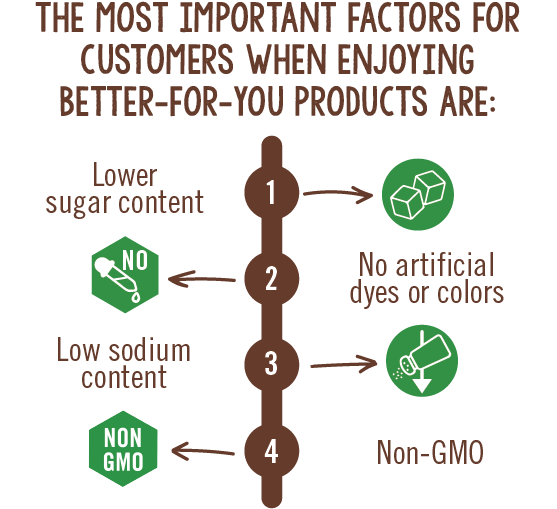Research conclusively reports that good nutrition and hydration for people with dementia is important in maintaining cognitive function as well as other bodily functions – furthermore, poor nutrition may exacerbate behavioral symptoms and cause weight loss. The post NUTRITION,...
november 1, 2023
nutrition, mealtimes, and dementia
maintaining good nutrition

[This is an informational document only; please speak with your loved one’s physician should you have questions regarding the advised proper diet.]
Caffeine or no caffeine?
Alcohol or no alcohol?
Supplements or no supplements?
The history of these three supposedly simple questions reveals the tip of the iceberg when it comes to dietary advice. Consumers have been given conflicting advice, there are cookbooks galore, and there are multiple diets under this sun. Add in a person who is experiencing dementia and the equation of what best to eat, let alone how to do it, becomes even trickier.
We need our diets to help us achieve two things when it comes to dementia:
Assist in prevention Inhibit cognitive declineResearch conclusively reports that good nutrition and hydration for people with dementia is important in maintaining cognitive function as well as other bodily functions – furthermore, poor nutrition may exacerbate behavioral symptoms and cause weight loss.
People with Alzheimer’s or other associated dementias may forget to eat, lose interest in meals, or simply not eat healthy foods. They may also forget to drink enough, leading to dehydration and constipation. They may become overwhelmed with too many food choices, or think they have already eaten. As the disease progresses, loss of appetite and weight loss may become concerns. In such cases, the doctor may suggest supplements between meals to add calories.
NUTRITION TIPS
Provide a balanced diet with a variety of foods: Offer foods that are easy to eat. Limit foods with high saturated fat and cholesterol Cut down on refined sugars: Note that in the later-stages of Alzheimer’s, if appetite loss is a problem, adding sugar to foods may encourage eating. Limit foods with high sodium and use less salt: Use spices or herbs to season food.MEALTIME TIPS
Make mealtimes calm and comfortable. During the middle stages of Alzheimer’s, distractions, too many choices, and changes in perception, taste and smell can make eating more difficult.
Keep mealtimes enjoyable with simplicity, flexibility, and creativity.
Limit distractions Keep the table setting simple: Avoid patterned plates, tablecloths, and placemats that might confuse the person. Using color to contrast plates against a tablecloth or placemat can make it easier for the person to distinguish the food from the plate or table. Provide only the utensils needed for the meal to avoid confusion. Distinguish food from the plate: Changes in visual and spatial abilities may make it tough for someone with dementia to distinguish food from the plate or the plate from the table. Avoid patterned dishes, tablecloths and place mats. Check the food temperature: A person living with dementia might not be able to tell if something is too hot to eat or drink. Always test the temperature of foods and beverages before serving. Offer one food item at a time: The person may be unable to decide among the foods on his or her plate. Serve only one or two items at a time. Be flexible with food preferences: It is possible the person may suddenly develop certain food preferences or reject foods he or she may have liked in the past. Allow plenty of time to eat: Keep in mind that it can take an hour or more for the person to finish. Eat together: Give the person the opportunity to eat with others. Keeping mealtimes social can encourage the person to eat. Keep in mind the person may not remember when or if he or she ate: If the person continues to ask about eating breakfast, consider serving several breakfasts – juice, followed by toast, followed by cereal.MAINTAINING INDEPENDENCE
During the middle stage of Alzheimer’s, allow the person with dementia to be as independent as possible during meals. Be ready to help, when needed.
Make the most of the person’s abilities: Adapt serving dishes and utensils to make eating easier. Serve finger foods: Try bite-sized foods that are easy to pick up, such as chicken nuggets, fish sticks, tuna sandwiches, orange segments, steamed broccoli, or cauliflower pieces. Try hand-over-hand feeding: Demonstrate eating behavior by putting a utensil in the person’s hand, placing your hand around theirs and lifting both of your hands to the person’s mouth for a bite. Don’t worry about neatness: Let the person feed himself of herself as much as possible. Set bowls and plates on a non-skid surface such as a cloth or towel. Use cups and mugs with lids to prevent spilling. Fill glasses half full and use bendable straws.EATING AND NUTRITION PROBLEMS
In the middle and late stages of Alzheimer’s, swallowing problems can lead to choking and weight loss.
Prepare foods so they aren’t hard to chew or swallow Be alert for signs of choking: Encourage the person to sit up straight with his or her head slightly forward. If the person’s head tilts backward, move it to a forward position. At the end of the meal, check the person’s mouth to make sure food has been swallowed. Learn the Heimlich maneuver in case of an emergency. Address a decreased appetite: Try preparing some of their favorite foods. You may also consider increasing the person’s physical activity or plan for several small meals rather than three large meals.Resources
Alzheimer’s Disease – Mayo Clinic
Alzheimer’s Disease – Food & Eating
Enjoy the article? Be sure to Subscribe to Winter Growth’s Live Joyfully Blog to receive a notification when new posts are available!

Winter Growth’s founder dreamed of creating a community where seniors and adults with disabilities could continue to learn and grow – filling their lives with joy and purpose. For over 40 years, we have fulfilled her vision by providing unique, affordable Assisted Living/Memory Care and Adult Medical Day Care tailored to our clients’ individual abilities, interests, and lives.
The post NUTRITION, MEALTIMES, and DEMENTIA appeared first on Winter Growth.











